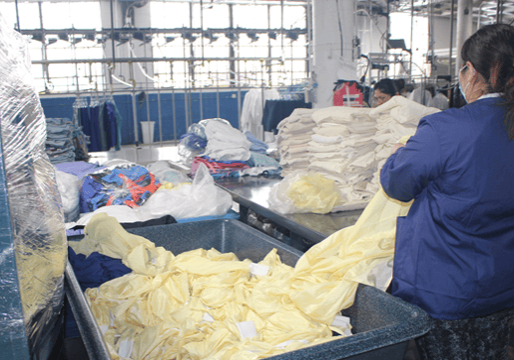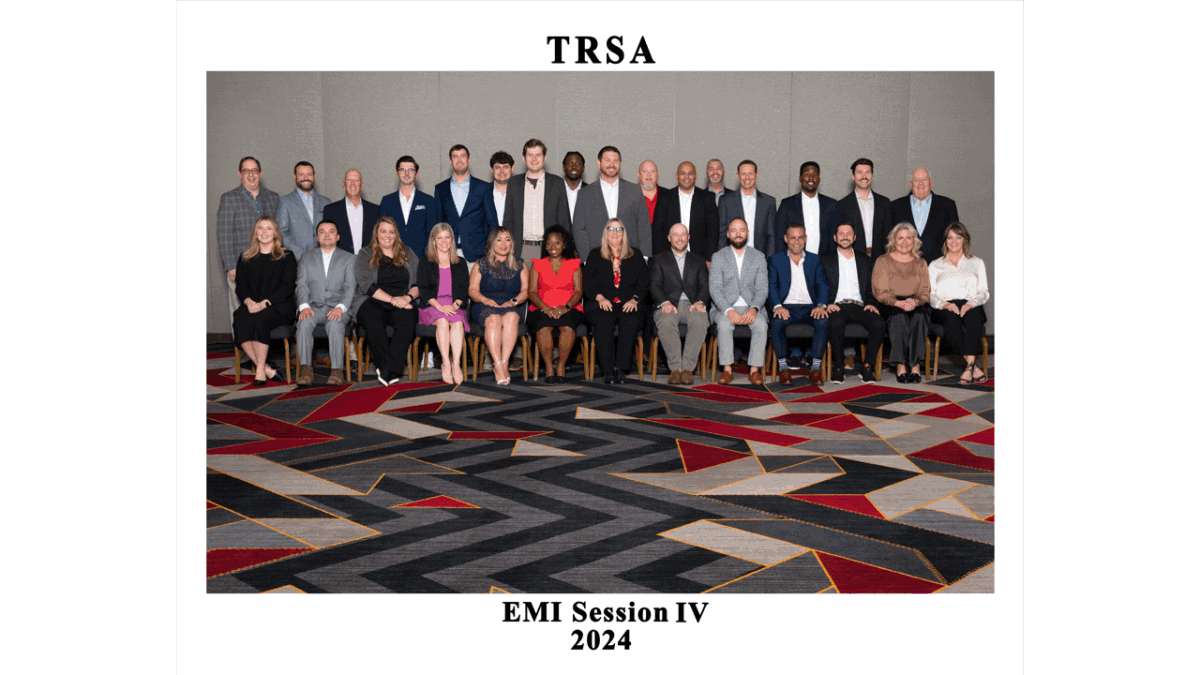TRSA and laundry operators in the healthcare textile space face an uphill battle convincing healthcare providers of the value of reusable personal protective equipment (PPE) vs. “single-use” disposable PPE, according to an article in May’s Textile Services on the issue. But action by state and federal policymakers could make a difference.
That’s why TRSA is leading a robust advocacy effort on reusable PPE. The association’s leadership believes this lobbying push offers the best hope for reusables to overcome resistance from hospitals that may prefer neatly packaged disposable PPE, such as isolation gowns. Another factor pushing hospitals toward disposables is their access to bulk discounts on scores of products that hospitals use, ranging from toilet paper to gowns. When COVID-19 struck in March 2020, this arrangement was upended by a spike in demand for PPE to deal with COVID cases. The pandemic led to shortages in supplies of disposable PPE, according to the article, titled, “‘Change Can be Difficult’ – The Challenge of Converting Healthcare Providers to Reusable PPE.” To help fill the gap, many healthcare laundries across North America stepped in with reusable gowns that weren’t reliant on supplies of disposables from overseas manufacturers.
During COVID, the shortages of PPE got so severe that some healthcare professionals donned garbage bags and similar items to defend against the virus. These PPE shortages led TRSA’s Vice President of Government Relations Kevin Schwalb and TRSA members to urge federal lawmakers to ask U.S. Secretary of Health and Human Services Xavier Becerra to study the issue in an effort to help prevent future PPE shortages.
Those efforts bore fruit in early March when an online workshop held by the National Academy of Sciences, Engineering and Medicine (NAS) featured numerous witnesses. Among these were healthcare laundry professionals who discussed the economic, safety and environmental benefits of reusable PPE. Schwalb called the workshop an important move toward a regulatory mandate that would require a mix of reusable and disposable PPE to safeguard caregivers against future shortages. “This workshop was the first step in possible regulatory activity to increase HCT (healthcare textiles) use, enhancing sustainability and patients’ and healthcare professionals’ safety, decreasing costs and protecting the PPE supply chain,” Schwalb said in the article. He added that the workshop, “demonstrated the importance of the industry’s involvement in public policy.”
TRSA is backing a similar effort in New York to require hospitals and clinics to implement a 50-50 mix of reusable and disposable PPE.
Brendan O’Neill, COO of London Hospital Services Inc., London, Ontario, Canada, said in the article that there are challenges associated with implementing programs that call for a mix of reusables vs. disposable PPE in hospitals. “Reusable surgical programs require investment in staff (training takes four times as long with a surgical program); infrastructure (dedicated, segregated areas for processing surgical products as per the standards); technology (computerized tracking of all surgical products, both sterile and nonsterile); and equipment (special tables, sterilizers, banding equipment, printers, etc.).”
While difficult, the fight for reusables is worthwhile, says Shelley Petrovskis, director of marketing and regulatory affairs for Lac-Mac Ltd., London, Ontario, Canada, a provider of reusable PPE. “I like to think that reusables should be adopted by hospitals and outpatient centers based on their merits for outstanding protection, cost savings and the environmental benefits which they provide,” Petrovskis says. “But I also know that change can be difficult. Legislation mandating set levels of PPE and requiring a percentage of those levels to be reusable, would help us achieve the much-needed positive change.”
Click here to see a PDF version of the full article in May’s Textile Services. Click here for more on Textile Services magazine, including subscription information.
Sign Up For Our Newsletter
Receive the latest updates on the linen, uniform and facility services industry from TRSA delivered straight to your inbox.








